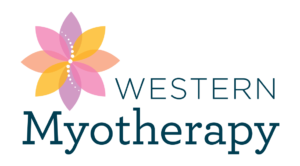
04 Jun Myotherapy vs. Physiotherapy: What’s the Difference?
Individuals seeking relief from musculoskeletal issues have access to a diverse range of therapeutic options. Among the most prominent are Myotherapy and Physiotherapy, two distinct modalities with unique approaches to rehabilitation and pain management. While both aim to enhance physical well-being, understanding the disparities between these disciplines can help individuals make informed decisions about their healthcare journey.
Physiotherapy:
Physiotherapy, often referred to as physical therapy, is a healthcare profession focused on optimising movement and function. Physiotherapists assess, diagnose, and treat a broad spectrum of musculoskeletal conditions, neurological disorders, and injuries. Their interventions are guided by evidence-based practice and encompass a variety of techniques to promote recovery and prevent recurrence.
Key features of Physiotherapy include:
- Comprehensive Assessment: Physiotherapists conduct thorough assessments to evaluate a patient’s mobility, strength, flexibility, and overall functional capacity. This may involve analysing movement patterns, conducting neurological tests, and assessing biomechanical factors contributing to injury or dysfunction.
- Treatment Modalities: Physiotherapy employs a diverse range of treatment modalities, including exercise prescription, manual therapy, electrotherapy, hydrotherapy, and education. These interventions are tailored to address specific impairments, restore optimal function, and facilitate rehabilitation across various stages of recovery.
- Functional Rehabilitation: A hallmark of Physiotherapy is its focus on functional rehabilitation, which involves restoring individuals to their maximum level of independence and participation in daily activities. Physiotherapists work closely with patients to set functional goals, implement personalised treatment plans, and monitor progress over time.
Myotherapy:
Myotherapy is a specialised form of manual therapy focused on the assessment, treatment, and management of musculoskeletal pain and dysfunction. Myotherapists employ a holistic approach to address both acute and chronic conditions, utilising a combination of massage techniques, trigger point therapy, and additional modalities to alleviate pain and improve function.
Key features of Myotherapy include:
- Musculoskeletal Assessment: Myotherapists conduct comprehensive assessments to identify the underlying causes of musculoskeletal issues. This may involve palpation, range of motion testing, and postural analysis to pinpoint areas of tension, imbalance, or dysfunction.
- Manual Therapy Techniques: Myotherapy primarily utilises hands-on techniques, such as soft tissue massage, myofascial release, trigger point therapy, and joint mobilisation, to address musculoskeletal imbalances and alleviate pain. These techniques aim to release tight muscles, improve circulation, and restore optimal tissue function.
- Integrated Approach: Myotherapy takes an integrated approach to treatment, incorporating additional modalities such as dry needling, cupping, corrective exercise, and lifestyle advice to support holistic healing. Myotherapists work collaboratively with clients to develop personalised treatment plans tailored to their specific needs and goals.
Choosing the Right Option for You:
When considering the differences between Myotherapy and Physiotherapy, individuals should take into account the nature of their condition, treatment preferences, and long-term goals for recovery. Physiotherapy may be preferred for comprehensive rehabilitation following surgery or acute injury, whereas Myotherapy may be more suitable for managing chronic pain and musculoskeletal conditions.
Ultimately, both Myotherapy and Physiotherapy offer valuable approaches to musculoskeletal health and well-being. By understanding the distinctions between these modalities, individuals can make informed decisions about which treatment aligns best with their needs and preferences.
At Western Myotherapy, our qualified and experienced therapists will tailor their treatments to align best with your needs and preferences, and help assist you in making informed decisions in your best interest.
Reach out today and call the clinic on (03) 8001 2042 to schedule your appointment.



Sorry, the comment form is closed at this time.